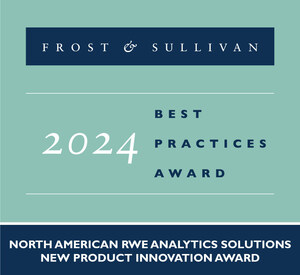Flex Fuel Powertrains Dominate Brazilian Passenger Vehicle Market, Finds Frost & Sullivan
Powertrain suppliers must focus on achieving economies of scale for newer technologies to gain prominence
SAO PAULO, Nov. 13, 2013 /PRNewswire/ -- Emission regulations such as PROCONVE and the tax structure in Brazil will play a key role in altering the powertrain mix by 2020. Supportive programs like the INOVAR Auto Directive and IPI tax structure will not only augment the growth of the automotive market in the region but also encourage domestic production and innovation. Flex fuel will continue to be the most dominant fuel type, with over 80 percent penetration expected in 2020. Technologies such as turbocharging and direct injection with flex fuel too will gain prominence in the medium and long terms.
New analysis from Frost & Sullivan (http://www.automotive.frost.com), Future of the Powertrain Market and Engine Technology Uptake Analysis in Brazilian Passenger Vehicles, finds that powertrain production that stood at 2.9-3.3 million units in 2012 will grow to reach 3.9–4.2 million units in 2020.
However, making state-of-the-art powertrain technologies affordable is a key challenge facing the Brazilian market, as the costs of production as well as vehicle ownership remain high. With increasing customer demand for sophisticated and convenient technology, original equipment manufacturers (OEM) and suppliers alike are expected to introduce technologies across vehicle portfolios to achieve economies of scale.
"Creating OEM powertrain strategies and introducing technologies such as turbo-downsizing, variable valve timing/actuation (VVT/VVA), and direct injection on a global level are considered the best approach to attain economies of scale," said Frost & Sullivan Automotive and Transportation Senior Research Analyst Yeswant Abhimanyu. "Offering entire engine packages and low-cost options will also help capitalize on opportunities, and hence, suppliers are looking to set up facilities in Brazil to avoid the high import taxes."
Powertrain manufacturers should focus on innovation in flex fuel technologies to match commercially available technologies for gasoline and diesel. This is crucial as flex fuel will remain popular due to the flexibility it offers customers in terms of choosing the fuel type according to price and availability as well as Brazil's strong intent to follow a sustainable fuel matrix.
"Meanwhile, lobbyists and OEMs are pushing to ease the government ban on diesel passenger vehicles with a pulling capacity of less than 1000 kilograms, as it puts a potential energy source out of bounds," added Abhimanyu. "The withdrawal of this mandate will provide more vehicle options to the growing and demanding customer base and quicken powertrain and engine technology market expansion in Brazil."
If you are interested in more information on this research, please send an e-mail to Francesca Valente, Corporate Communications, at [email protected], with your full name, company name, job title, telephone number, company e-mail address, company website, city, state and country.
Future of the Powertrain Market and Engine Technology Uptake Analysis in Brazilian Passenger Vehicles is part of the Automotive & Transportation Growth Partnership Service program. Frost & Sullivan's related research services include: 360 Degree Analysis of the Automotive Market in Argentina, 360 Degree Perspective of the Latin American Automotive Aftermarket, Brazil Electric Vehicle Market, and 360 Degree Overview of the Latin American Rail Freight Transport Market. All research services included in subscriptions provide detailed market opportunities and industry trends evaluated following extensive interviews with market participants.
About Frost & Sullivan
Frost & Sullivan, the Growth Partnership Company, works in collaboration with clients to leverage visionary innovation that addresses the global challenges and related growth opportunities that will make or break today's market participants.
Our "Growth Partnership" supports clients by addressing these opportunities and incorporating two key elements driving visionary innovation: The Integrated Value Proposition and The Partnership Infrastructure.
- The Integrated Value Proposition provides support to our clients throughout all phases of their journey to visionary innovation including: research, analysis, strategy, vision, innovation and implementation.
- The Partnership Infrastructure is entirely unique as it constructs the foundation upon which visionary innovation becomes possible. This includes our 360 degree research, comprehensive industry coverage, career best practices as well as our global footprint of more than 40 offices.
For more than 50 years, we have been developing growth strategies for the global 1000, emerging businesses, the public sector and the investment community. Is your organization prepared for the next profound wave of industry convergence, disruptive technologies, increasing competitive intensity, Mega Trends, breakthrough best practices, changing customer dynamics and emerging economies?
Contact Us: Start the discussion
Subscribe: Newsletter on "the next big thing"
Register: Gain access to visionary innovation
Future of the Powertrain Market and Engine Technology Uptake Analysis in Brazilian Passenger Vehicles
NAE6-18
Contact:
Francesca Valente
Corporate Communications – Latin America
P: +54 11 4777 5300
F: +54 11 4777 5300
E: [email protected]
SOURCE Frost & Sullivan
WANT YOUR COMPANY'S NEWS FEATURED ON PRNEWSWIRE.COM?
Newsrooms &
Influencers
Digital Media
Outlets
Journalists
Opted In





Share this article